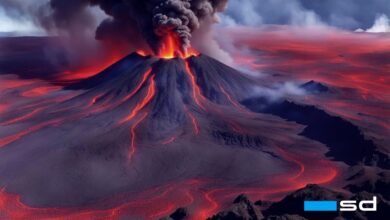
Sir Roger Penrose, who just won the 2020 Nobel Prize in physics, recently commented on the possibility that our universe is cyclical. He claims that evidence may exist in the form of Hawking radiation entering our universe from the black holes of a previous one.
“I claim there is observation of Hawking radiation. The Big Bang was not the beginning. There was something before the Big Bang and that something is what we will have in our future”
Penrose suggests that certain spots of electromagnetic radiation, which he calls Hawking Points, may in fact be “remnants of a previous universe,” according to The Independent.
“So our Big Bang began with something which was the remote future of a previous aeon and there would have been similar black holes evaporating away, via Hawking evaporation, and they would produce these points in the sky, that I call Hawking Points.
We are seeing them. These points are about eight times the diameter of the Moon and are slightly warmed up regions. There is pretty good evidence for at least six of these points.”
Penrose’s idea falls under a cosmological model called Conformal Cyclical Cosmology. That said, the concept of a cyclical universe has existed not just in science, but in religions throughout history, particularly those found in India.
Time And Time Again

Penrose’s statements got me thinking about the nature of parallel universes, and how time might play a role.
When we think about parallel universes, we usually imagine, say, infinite timelines literally running parallel to each other (like the lines of a fiber optic lamp). Similar timelines would run closer together.
But if our universe exists in a state of constant birth and rebirth, would that change anything?
What if parallel universes are actually different infinite variations of the same universe, existing at different points in the birth and rebirth cycle? And, given the absolute wonkiness of time (or whatever you might want to call it), what if all the born and reborn versions of our same universe kind of exist on top of each other, all at the same “time?”
That’s kind of a hard concept to get into writing. I guess that’s why physicists use math.
That’s not even considering the implications for reincarnation. If the universe is infinitely born and reborn, were there universes just like this one in the past? Will there be universes just like this one in the future? Was there a ‘you’ in a previous universe, and will there be a ‘you’ again?
Have we been here before?






